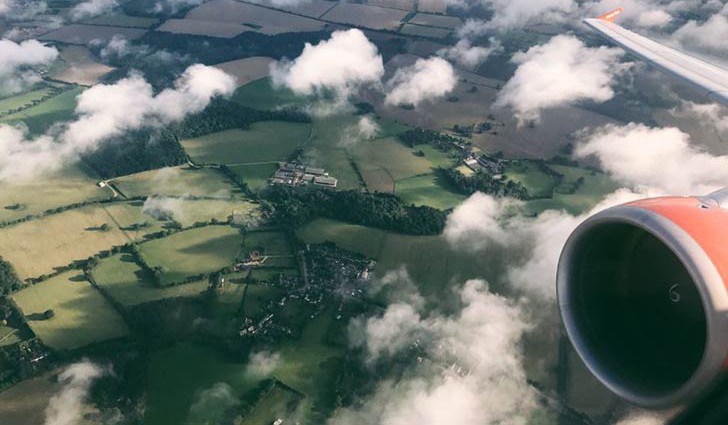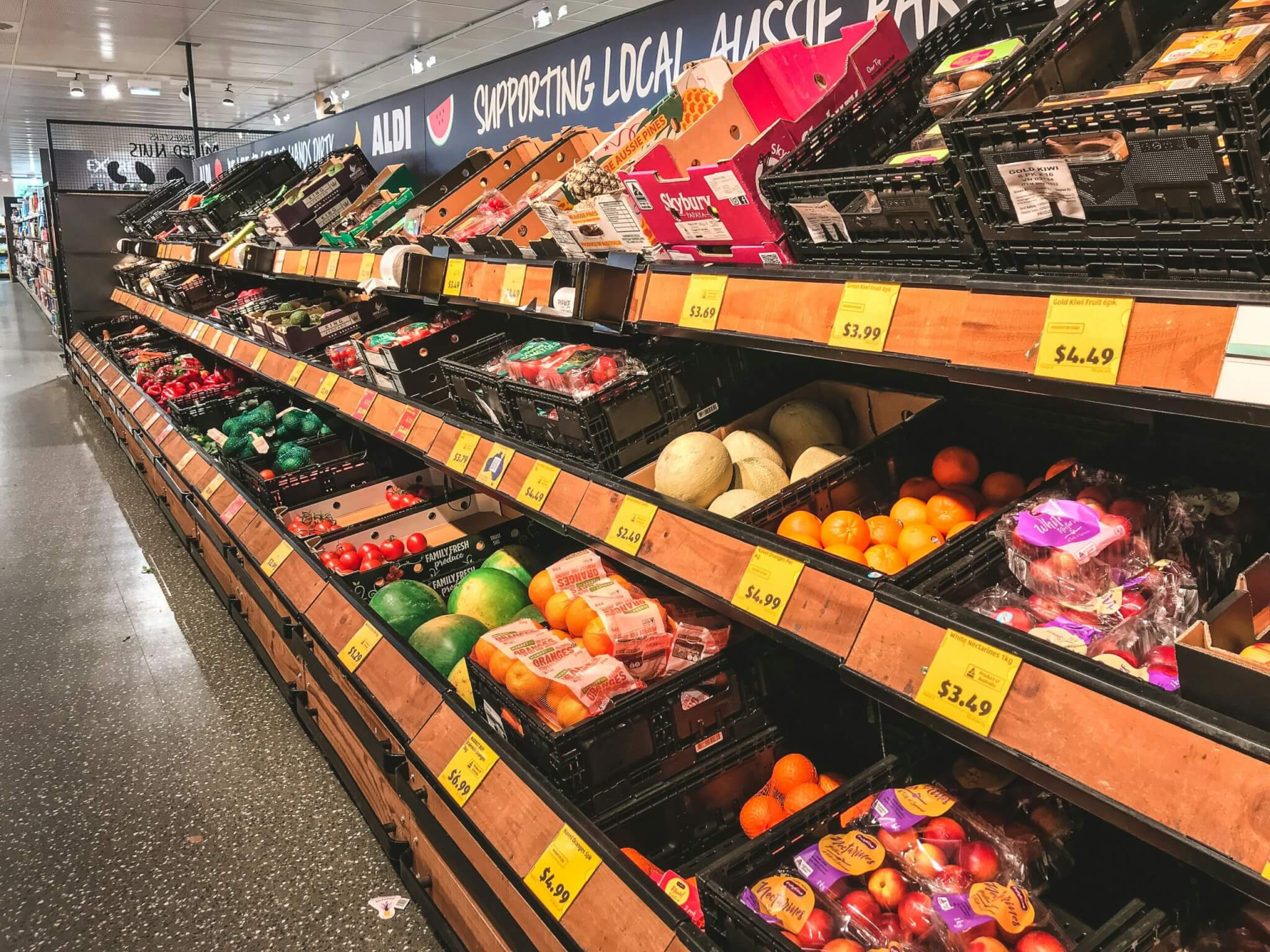When I received an invite to attend the Emirates Airline Festival of Literature to speak about my book, Go Toxic Free, my initial thought was ‘thanks but no thanks’. I rarely fly and couldn’t possibly justify the 11,000 km round-trip to Dubai in a bid to highlight chemical pollution at an event sponsored by an airline. That would be way too hypocritical, right?
I sent myself into decision-making turmoil. Hybrid events weren’t feasible. This trip wasn’t a frivolous holiday. Colleagues told me I should go “because I had a really important message to share”.
In my quandary, I contacted leading environmentalist, and chair of Natural England, Tony Juniper. He admitted he’d wrestled with the same question many times over the years, but he pointed out that if I stayed at home, I’d miss the opportunity to change peoples’ minds about these crucial issues.
“If I didn’t get on various planes over the years quite a lot of good things might not have happened, which is paradoxical, given the emissions involved,” Juniper told me. “That’s life though; messy, contradictory, dissonant and uncertain.”
This cognitive dissonance or mental conflict has long fascinated me. Disengage, and meaningful change won’t happen. Worry too much and it’s easy to burn out, achieving nothing in the long-term.
There’s a constant tug of war going on inside my head. Are my actions aligned with my values? I’m certainly no saint, but my carbon footprint is pretty low – I’m vegetarian, power my home with renewables rather than oil or gas and will soon be driving an electric car.
There’s a constant tug of war going on inside my head. Are my actions aligned with my values?
Transparency is crucial. Flying is just one slice of the pollution pie and accounts for about 2.5 per cent of global CO2 emissions. Shipping is responsible for slightly more and so much of the stuff I own has probably been transported across international waters. Astonishingly, food production is responsible for about a quarter of global carbon emissions (livestock and fisheries account for one third of that). It’s fundamental that we look at the bigger picture.
Every difficult decision is a compromise.
When Dame Emma Thompson was condemned for flying from LA to attend a climate protest in London in 2019, she insisted that whether she flew or not wasn’t the story. “The message from Extinction Rebellion wasn’t that no one can fly, it was that for decades now we have been asking for clean energy and this has been ignored,” she told ITV News.
Recycled fashion entrepreneur Grace Beverley’s Instagram grid shares posts about recent trips to places such as Santorini and Bali with her million followers. She didn’t walk there. Meanwhile, sustainable fashion influencer Zanna Van Dijk admitted she was far from pure in a blog that listed her not-so-sustainable habits.
I’m all for being held to account but we can’t all live off-grid and perfection isn’t a realistic goal. To some extent, we are all restricted by the crazy world we exist within and that’s why we urgently need to shift to better, fairer, greener systems. That system-level change won’t happen through individual choices but through those with power – governments and big companies – changing the rules.
The doubt I expressed to the festival organisers before accepting the invite has already had ripple effects. As a direct result, I’ll be leading extra discussions about the importance of genuine climate literacy. And while the United Arab Emirates may seem an unlikely destination for a talk on reducing chemical footprints, given the country’s reputation as a ‘petro-state’, I’m keen to explore how leaders plan to square their fossil fuel reliance alongside hosting the next COP28 climate summit in November. I won’t know if I don’t go.
So, I’m getting on that plane with good intentions, big plans, high hopes and, fingers crossed, my integrity intact.










I challenge some of the assumptions made about flying versus trains. In terms of CO2 emissions it’s obviously better not to travel at all. But assuming one must (or wants to), I really wonder if train travel is less polluting than flying. A full carbon audit of my recent 3 day train trip versus a 2.5 hour flight from Spain to London (family Christmas) would probably find that if you include the carbon cost of diesel and electric trains (loads of CO2 cost in the concrete and steel railway infrastructure), taxis, hotels, and food along the way, the carbon cost is not that different. The financial cost was very different – about x10 more expensive by train even using discounted tickets and cheap hotels. I enjoyed the trip, but right now European train travel is a pleasant indulgence for the well off. It’s not a planet saver.
I too am someone who travels to Spain for family reasons. I accept much of what you say about the impact of train travel, However, the infrastructure is already there, and surely it’s better to have it fairly heavily used to justify those CO2 costs, which can’t be un-spent? The real difficulty is the expense of train travel – even worse in the UK – which makes such travel a very expensive indulgence
Yes of course …it just struck me that 3 hours in a plane might be less polluting than 3 days on trains, taxis, and in hotels. I don’t know , but the assumption that planes are bad and trains are good seems worth questioning. And next time I will probably fly.
This is wishy washy. Too many adjectives and when numbers are quoted they are global. The reason flying accounts for what is made to look like a small amount of CO2 is because most people in the world never get on a plane.
Come on Anna calculate your annual carbon footprint and publish it. Less than 10tonnes?
Yes – it’s below average at 6.5 tonnes per year without the flight, 9.7 tonnes with it (according to WWF carbon calculator). Relatively low and I do as much as possible at home to keep it that way, no oil/gas at home, EV, veggie. I do my best. Now that’s I’m home, I can assure you it was worth every air mile – my sessions have made an impact and it’s all the other conversations, collaborations and ideas that happen beyond the formal events that will make the biggest, most mainstream and far-reaching positive change. Watch this space. You might be interested to hear my take on all this – I recorded a short piece on the plane home: https://www.youtube.com/watch?v=GcKJkGhLH1g